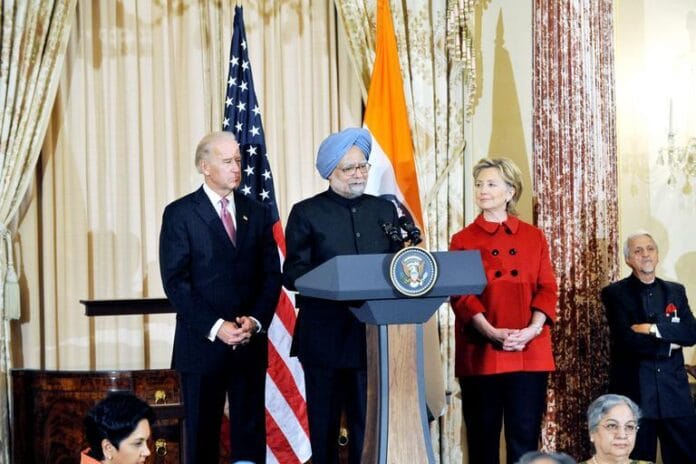Manmohan Singh, one of India’s longest-serving and most respected leaders, passed away on Thursday evening, leaving behind a legacy of transformative economic reforms and a lifetime of service to the nation. Known for his soft-spoken demeanour and intellectual prowess, Singh served as India’s prime minister from 2004 to 2014, and prior to that, as the finance minister who ushered India into an era of liberalisation in the 1990s.
Architect of India’s Economic Liberalisation
Singh’s journey to prominence began in 1991, when he was appointed finance minister during a time of economic crisis. With India on the brink of financial collapse, he implemented bold reforms that included devaluing the rupee, reducing import tariffs, and encouraging foreign investment. These policies revitalised the economy, curbed inflation, and set India on a path of sustained growth, lifting millions out of poverty. His iconic words in parliament, “No power on Earth can stop an idea whose time has come,” symbolised the country’s economic transformation.
As prime minister, Singh continued to champion reforms, steering India to become one of the world’s fastest-growing economies. Under his leadership, GDP growth averaged 8%, and significant strides were made in infrastructure, education, and healthcare.
A Reluctant but Resilient Leader
Despite his reluctance to enter the political limelight, Singh became the prime minister in 2004 when Sonia Gandhi, then Congress president, declined the position. While critics often claimed he was a “remote-controlled” leader, Singh’s first term was marked by decisive governance and a historic nuclear deal with the United States that ended India’s nuclear isolation.
His second term, however, was marred by corruption scandals and allegations of policy paralysis. Singh’s integrity remained unquestioned, but the controversies overshadowed his administration’s achievements, contributing to Congress’s defeat in the 2014 elections.
Champion of Social and Democratic Rights
Singh’s tenure saw the enactment of landmark legislation that strengthened India’s democratic framework. He introduced the Right to Information Act, empowering citizens to hold the government accountable, and the Mahatma Gandhi National Rural Employment Guarantee Act, which provided livelihood opportunities for millions. Singh’s government also launched the Aadhaar project, a biometric identification system aimed at improving welfare delivery and financial inclusion.
In education, he enacted the Right to Education Act, ensuring free and compulsory schooling for children aged 6 to 14, significantly reducing dropout rates.
A Historic Apology and Reconciliation
As India’s first Sikh prime minister, Singh took the unprecedented step of publicly apologising for the 1984 anti-Sikh riots, in which thousands of Sikhs were killed following the assassination of Prime Minister Indira Gandhi. “I apologise not only to the Sikh community but to the entire nation,” he declared in parliament, marking a moment of reconciliation and healing.
Legacy of Diplomacy and Pragmatism
On the global stage, Singh pursued pragmatic foreign policies, fostering closer ties with the United States, continuing peace efforts with Pakistan, and addressing longstanding border disputes with China. His government’s financial and developmental support to Afghanistan and efforts to modernise India’s defence infrastructure further highlighted his commitment to enhancing India’s global stature.
A Life of Humility and Scholarship
Born on September 26, 1932, in a modest village in Punjab, which is now part of Pakistan, Singh overcame financial hardships to pursue higher education. He earned a master’s degree from the University of Cambridge and a doctorate from Oxford University. A distinguished academic and economist, Singh’s transition into politics brought intellectual rigor to Indian governance.
Despite his high office, Singh remained humble and self-effacing, often avoiding the spotlight. His calm demeanor and thoughtful approach won him admiration across the political spectrum.
A Reflection on History’s Judgment
In his final press conference as prime minister, Singh expressed hope that history would judge him kindly. “I honestly believe that history will be kinder to me than the contemporary media or opposition parties in parliament,” he remarked. His contributions to India’s economic and social development, and his role in steering the country through challenging times, ensure his place as one of India’s most impactful leaders.
Singh is survived by his wife, Gursharan Kaur, and three daughters. India mourns the loss of a statesman who combined wisdom with humility, leaving a legacy that will inspire generations.




